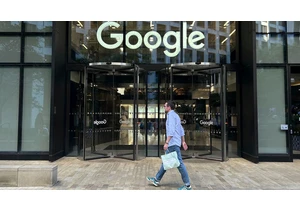Non-fungible tokens (NFTs) are so much more than buzzy digital art. Though you could be forgiven for thinking that’s all they are. After some spotty activity in the mid-2010s, NFTs burst into mainstream awareness in 2021 with a handful of multimillion-dollar art sales. This led to a hype-driven spike and fall in trading activity, with many dismissing NFTs as a passing fad. A year later, NFTs haven’t faded away. If anything, they’ve matured—branched out, spread their wings, worked their way beyond the art world and into numerous industries. The true value of NFTs is their combination of uniqueness and transparency. “Non-fungible” means each one is utterly one-of-a-kind, and the underlying blockchain means all sales activity is tracked with perfect accuracy. Here’s a brief look into how four major industries—music, e-commerce, sports, and real estate—are using that value to their advantage. 1. Music More revenue for musicians. Musicians like Kings of Leon, Shawn Mendes, and Grimes have begun releasing NFTs related to their music. In some cases, the NFTs are digital art that translates to concert tickets. in other cases, it’s the music itself. And in all cases, artists create and distribute the NFTs without going through record label middlemen. This enables much more favorable deals (and more revenue) for artists. That’s good news: as of now, only the top 0.8% of artists make more than $50,000 in yearly streaming revenue. Healthier revenue could help reestablish the “middle class” of musicians which hasn’t really existed since the early 2000s. Reestablishing scarcity for recorded music. Through 2001, physical scarcity was the backbone of the recorded music industry. In 2001, recorded music generated $23.5 billion of revenue. About 97% of that came from physical music sales (CDs mostly). Then, digital sharing came along and destroyed recorded music’s scarcity. Even as recorded music’s overall revenue has rebounded, physical music’s share has only fallen since 2001. Much of the rebound is due to streaming—which, as we’ve seen, disproportionately benefits the artists at the top. NFTs establish digital scarcity, a feat streaming services like Spotify have been unable to accomplish. Digital sales of NFT versions of an album are finite, and artists can create rules for the NFT to always receive some portion of the proceeds when the NFTs are resold. Again, that’s good news for artists, who have seen practically nothing but bad news since 2001. 2. E-commerce NFTs to accompany real-world products. NFT pioneers like RTFKT Studios are using NFTs to reimagine physical retail. Early in 2021, RTFKT sold NFTs in tandem with physical sneakers: Customers got NFTs right away and received the physical shoes about a month later. The campaign produced $3.1 million in sales in under seven minutes. It also got Nike’s attention—the legacy brand purchased RTFKT Studios for $33 million late in 2021. Next-gen barcodes. E-commerce insiders have suggested that NFTs could replace scannable barcodes with a blockchain-native corollary. Blockchain is a more reliable record of a product’s supply chain movement and transaction lifecycle. 3. Sports Virtual memorabilia. Right now, you can buy one of Willie Mays’ game-worn baseball gloves for about $21,000. But with NFTs, you could theoretically buy a digitally unique video of “The Catch,” the iconic over-the-shoulder grab Mays made at the Polo Grounds in 1954. And unlike physical memorabilia, which are easily faked, NFTs’ unique digital signatures make them impossible to counterfeit. New revenue streams for sports teams. Just ask video gamers: digital-only content already produces tens of billions in yearly revenue. By selling digital-only replicas of prominent athletes’ gear—shoes, jerseys, etc.—sports franchises could add a brand-new line of very low-overhead revenue. 4. Real Estate Tokenizing property rights. Property owners can use NFTs to tokenize property rights—in other words, establish, track, and exchange property ownership. Think of tokenized property rights as a much more efficient deed to a house. Real estate sales currently take an enormous amount of legal oversight and regulation. Through the blockchain, NFT-based property ownership could create a more liquid real estate market, expand access to project funding, automate rent collection, and more. Metaverse properties. NFTs could enable the sale of virtual properties located in the metaverse. This could apply to a virtual replica of Fenway Park, or to territory in an imaginary realm (like the Minecraft world, which covers 1.6 billion square miles). These are just some of the ways that NFTs could impact existing industries. The NFT space is still extremely raw—filled with potential for those who see it as more than digital art. Like all burgeoning technologies, it will reward early movers and creative thinkers. Final thoughts NFTs have the potential to be what I call a “User Interface Moment” (that I wrote about in my book, BOLD), a broader blockchain revolution that will accelerate and make more-agile, economic, and ownership transactions. While currency is fungible and can be easily transferred, NFTs can be used to store much more complex and individual-specific information. For example, government documents such as marriage certificates, land registrars, food-grade ratings, and driver’s licenses can all be tokenized using NFTs. In retail, consumers can use blockchain technology to verify the legitimacy of luxury goods. When you step back and view these developments, you realize that we’re witnessing the birth of a multi-trillion-dollar economic ecosystem.
This article originally appeared on Minutes and is reprinted with permission.
Login to add comment
Other posts in this group

As Big Tech kicks off its quarterly earnings season this week, the industry’s bellwether companies have been thrust into a cauldron

Weeks ahead of his death, Pope Francis dedicated this month’s prayer intention to

Remember when TikTok went nuts for “Dubai chocolate”? Well, that fervor is now causing an international shortage of pistachios.
The trend took off in 2023 when food reviewer Maria Vehera

Google will confront an

Instagram has begun testing AI-powered technology designed to proactively identify accounts it suspects belong to teens—even if the user has listed an adult birthdate—and place them under special

Behind the curtain of generative AI breakthroughs and GPU hype, a quieter transformation is taking place. Data center architecture and its prowess have become a fierce battleground as AI models ex

Amid the video podcast boom, Netflix is making its own move into the space.
